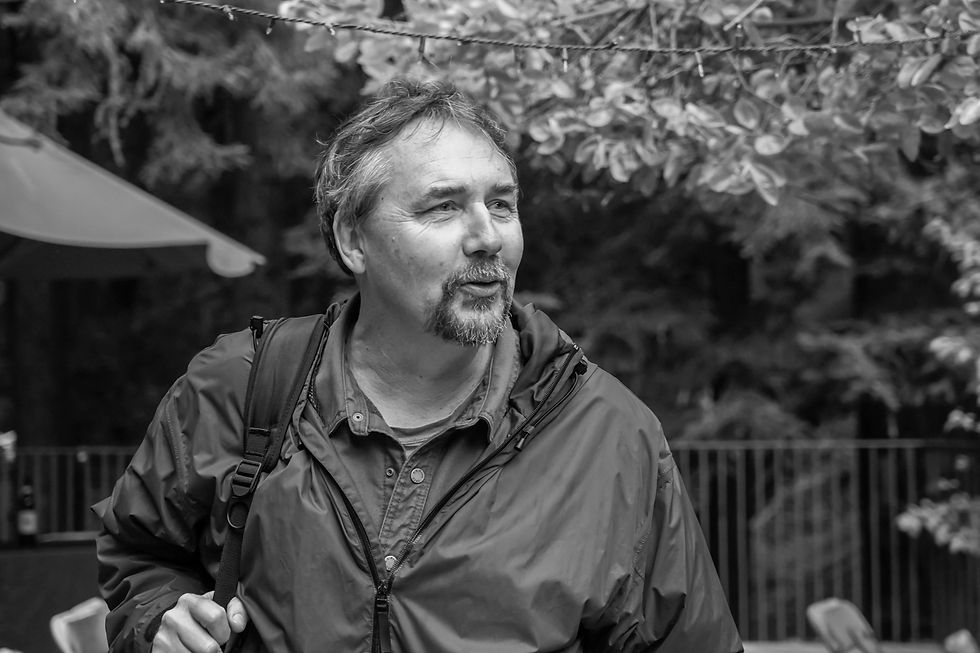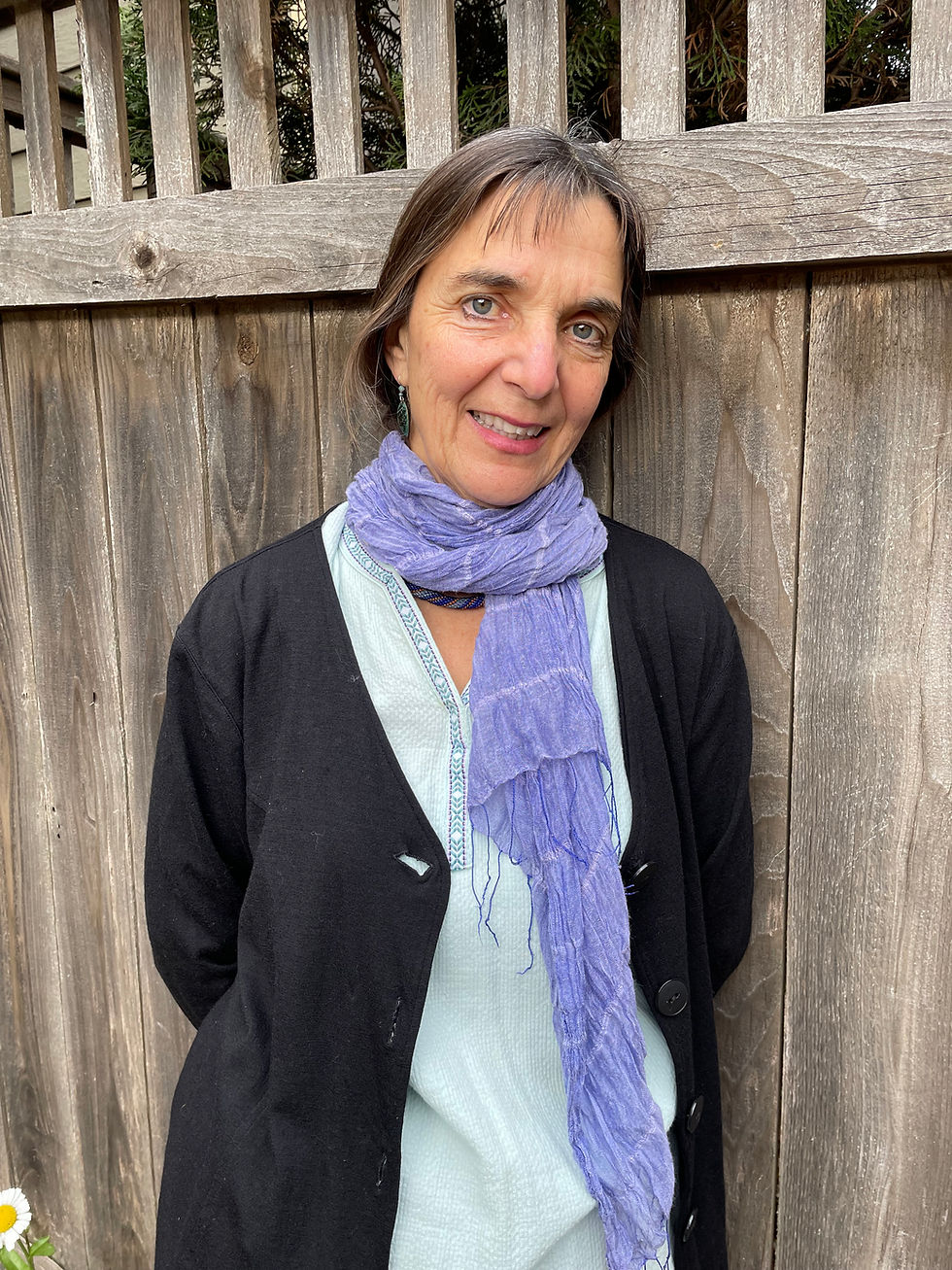Climate Consciousness and the Self-Immolation of David Buckel
- Ryan Beam
- Aug 30, 2018
- 3 min read

Fossil fuel development on American public lands like these near Sigurd, Utah contributes greatly to climate change (Credit: Ryan Beam)
On a nondescript patch of grass in New York, on the morning of April 14, 2018, an accomplished civil rights lawyer and beloved father, husband and community member sat down and calmly lit himself on fire. The note he left to the world named fossil fuels and climate change as the reason.
Maybe you have heard David Buckel’s story, but more likely you haven’t.
That morning, the headline stopped me in my tracks.
The story came to me during some months of unfocused contemplation on climate justice as I had been helping to organize a youth-led climate conference called Uplift and was thinking about what I wanted say with this blog post as part of that work.
I was examining my own climate consciousness. Up to that point, I had listened to podcasts, read scientific studies, watched documentaries and even read a comic book about climate change. But now I began to wonder: Just how aware of the implications and injustices of climate change was I? How much had I embodied that knowledge? And despite all of the exposure, were my actions lining up with what I knew or did I continue to deny my complicity with the problem?
After weeks of thought, I wasn’t landing on anything that amounted to much more than the fact that climate change is uniquely difficult to comprehend and counteract. It is omnipresent yet unseen; its implications stretch around the globe, and it pits the pleasure of privileged people against the pain of the disadvantaged. It’s a problem that the human brain and body has perhaps not evolved to understand and certainly a problem that American society ー with its fossil-fueled consumerism ー has not prepared me to see.
It was not until reading about David’s self-immolation that morning in April that I finally gained some insight. While his actions didn’t fully sink in then (and I’m not sure they ever will), his story provided a seed around which to concentrate my thoughts.
As the day went on, the conversations I expected to be having about the story never happened. The many questions in my head went strangely undiscussed.
If David Buckel, an accomplished LGBTQIA advocate, had done this in protest, why hadn’t he sent out a media advisory in time for the press to bear witness?

The self-immolation of Thích Quảng Đứ in 1963 (Credit: Malcolm Browne via Wikimedia Commons)
Why hadn’t his actions caused the world to pause like the iconic photo of Thích Quảng Đức burning in protest of religious persecution in South Vietnam in 1963? That act demanded the attention of the people across the planet and focused enormous pressure on the South Vietnamese government whose leader at the time was assassinated later that year.
And again, why was no one talking about this?
I began to think about what did and did not connect Thích Quảng Đức and David Buckel. In the United States, we generally point to depression and loneliness as the reason someone would choose to end their own life. With Thích Quảng Đức, however ー as with the five other Buddhist monks who followed in his path of self-sacrifice in 1963 ー the reasons had more to do with oppression and repression. They came from a culture where a tradition of community protest through self-immolation already existed and where David did not.
But I imagine that while David was alone in the park that morning, he knew that he was in fact standing with millions or billions of brothers, sisters and gender non-conforming siblings around the planet. I imagine he knew that the consciousness of global climate solidarity he held would reshape the world; that it would soon blossom and drive us towards a just future.
So while much of the world may not have been ready to hear David’s story, I certainly was. And while I still have many questions and carry a heavy heart with regard to David, I will choose to hold his story as one of reckoning and hope. I will remember his actions as an act of protest against fossil fuel extraction and consumption and an inspiring, deep recognition that we do stand as a united community against the injustices of climate change.

Substantial amounts of oil and gas extraction occur on public lands in the Book Cliffs of east central Utah (Credit: Ryan Beam)

Ryan Beam is a campaigner for public lands program of the Center for Biological Diversity. He focuses on fighting efforts to cede ownership or management authority of public lands to private interests by challenging dark money networks, militant members of the “Patriot movement” and land-seizure efforts at the congressional level.



EPTU Machine ETPU Moulding…
EPTU Machine ETPU Moulding…
EPTU Machine ETPU Moulding…
EPTU Machine ETPU Moulding…
EPTU Machine ETPU Moulding…
EPS Machine EPS Block…
EPS Machine EPS Block…
EPS Machine EPS Block…
AEON MINING AEON MINING
AEON MINING AEON MINING
KSD Miner KSD Miner
KSD Miner KSD Miner
BCH Miner BCH Miner
BCH Miner BCH Miner